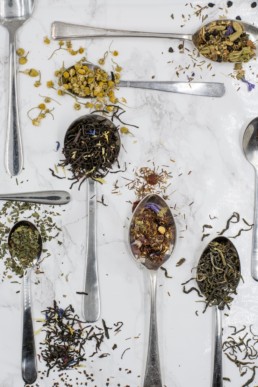
The philosophy of Chinese medicine is based on the concept of Qi, a vital life force that surges through all living things.
Qi is balanced through Yin and Yang, the opposite, complementary forces that create Qi. According to tradition, when an individual’s Qi is out of balance, illness and disease result. Under this view of health and wellness, treatment must be carefully customized to resolve the specific imbalance and therapy is unique to the specific patient’s needs.
One of the most basic tenets of Chinese medicine is a whole-body approach to care. Instead of simply treating a headache without regard for the root cause or concurrent symptoms, practitioners create a treatment plan that addresses underlying disharmony. This principle is particularly evident in the treatment of infertility.
Qi has a strong influence on fertility, and Chinese tradition indicates that balancing the yin and yang are critical first steps to becoming pregnant. There are specific herbal remedies designed to promote fertility in both men and women by rebalancing the body’s energy.
These are some of the topics and therapeutic recommendations that may come up in your treatment.
Understanding Male Infertility
One of the biggest issues facing patients and their physicians is the fact that in 30 percent of cases, no medical cause of infertility can be identified.
Men often pursue alternative treatment options when this issue comes up, because they prefer to avoid the expense and uncertainty of in vitro fertilization.
Studies show that traditional Chinese medicine can positively impact fertility levels in some cases. For example, certain patients have found that traditional Chinese medicine successfully regulated the hypothalamic-pituitary-testicular axis and boosted the function of Leydig cells and Sertoli cells.
Through traditional Chinese medicine, you may be able to bring your inflammation levels down and prevent oxidative stress, both of which can hinder fertility.
Finally, traditional Chinese medicine has been shown to modulate the proliferation and apoptosis of germ cells and reduce the DNA fragmentation index.
The Impact of Kidney Qi in Male Fertility
Under traditional Chinese medicine theory, the kidneys play an important role in male fertility. They serve as the foundation for balance between yin and yang in other organs.
The most common causes of infertility in men include weakness of the kidneys, referred to as kidney asthenia, and liver qi stagnation. There may also be concerns about meridian blockages due to excessive phlegm.
Weak kidneys or kidney asthenia may be identified by common symptoms, such as chronic achiness of the legs and back. Frequent urination is another common patient complaint, and some men experience impotence as a result of this condition.
Liver qi stagnation is marked by excessive amounts of tension in the muscles, as well as ongoing digestive disorders, and bloating or pain in the abdomen. The most common cause of this condition is high levels of stress.
Blockages or disruption to the balance of kidney meridians can be caused by a number of lifestyle factors. Examples include overeating, excessive alcohol or drug consumption, poor nutrition, overwork, and unreasonable stress levels.
Some men even discover that their kidney qi is out of balance as a result of too much sexual activity.
Symptoms of meridian disruption or blockage include sudden, rapid changes in body temperature, moodiness, chronic pain in the knees and lower back, fatigue, unexplained hair loss, ringing in the ears, and infertility.
Generally, a practitioner examines the patient to determine the full scope of the problem, as well as the specific combination of symptoms appearing as a result. This detailed information allows experts in Chinese medicine to create a comprehensive treatment plan that includes herbal remedies and acupuncture. These work together to boost kidney health and support clearing of meridian blockages.
Foods to Boost Kidney Qi in Males
In addition to working through issues with kidney qi through herbal remedies and acupuncture, it is possible to boost kidney health and balance kidney qi through diet.
First, make every effort to source your meals grown and raised organically, free range, or wild. This minimizes your exposure to hormones, antibiotics, and pesticides that can collect in your body.
Next, choose proteins wisely. Anchovies, chicken, eggs, fish, fish oils, ghee, kidneys, liver, mussels, oysters, salmon, sardines, and trout are all good options.
Finally, add smart veggie choices that are fresh or frozen. Avoid processed foods that comes in jars, cans, and boxes.
The best options for boosting kidney function and enhancing fertility include avocados, legumes, millet, mung beans, whole grains, almonds, black sesame seeds, honey, mulberries, raspberries, chestnuts, brussels sprouts, carrots, leafy greens, barley sprouts, black beans, black soybeans,coconut, flax seeds, flaxseed oil, pumpkin seeds, walnuts, barley grass, chlorella, kelp, kombu, micro algae, nettles, sea salt, wakame, and wheat grass.
Get creative and explore new ways to prepare unfamiliar foods, so you can increase the amount you include in your diet.
Chinese Medicine: Herbs for Fertility in Men
Your practitioner will base recommendations for herbal therapy on your specific physical needs and lifestyle factors.
More than 150 individual herbs have been identified as useful for supporting fertility, and individualized therapies may consist of 15 or more separate ingredients. Two of the most common include the following:
- Cinnamon – This is actually a spice created from the tree’s bark, and it is used to warm the body from the inside out. Cinnamon encourages yang energy, which is a necessary element of fertility. In men, this spice increases the quantity of sperm and improves the quality.
- Tribulus – This herb is often used in traditional Chinese medicine to improve the quality and quantity of sperm produced. Research shows that Tribulus positively impacts mobility, volume, and count to increase the likelihood of pregnancy.
Before beginning any herbal treatment regimen, consult with your provider.
Chinese Medicine: Herbs for Fertility in Women
Traditional Chinese medicine doesn’t only treat infertility in men. There is a full range of treatment options for women, as well.
Skilled practitioners perform a full-body evaluation before choosing the most appropriate combination of Chinese medicine herbs for fertility in your particular case. For example, cinnamon and Tribulus have fertility benefits for women.
- Cinnamon – This spice is helpful for addressing infertility in women, because it supports the balancing of blood sugar and consequently the body’s insulin response. This is useful in treating metabolic syndrome, a cause of infertility in women, and it has benefits for women experiencing polycystic ovary syndrome (PCOS).
- Tribulus – The benefits of Tribulus are a little different for women. This herb is effective in regulating ovulation, which is a particular issue for those experiencing PCOS. By normalizing the menstrual cycle, ovulation becomes easier to predict, which can increase the likelihood of pregnancy. More importantly, Tribulus appears to support conception in couples with high levels of anti-sperm antibodies. However, for this to work, both partners must take the herb in appropriate dosages.
Be sure to speak with your provider before taking these or any other traditional Chinese medicine herbs for fertility.
Herbal Supplements to Boost Fertility Summary
As traditional Chinese medicine gains traction in western cultures, practitioners are exploring methods of pairing modern medical treatments with supportive Chinese medicinal herbs to improve patient outcomes.
Herbs may be simmered into a tea or formed into a large pill for patient consumption, though these options aren’t popular in the West.
In an effort to increase access to effective Chinese therapies, it is now possible to purchase medicinal herbs in a more palatable powder or capsule form. That’s good news for men and women seeking alternative methods of improving fertility.
If you plan to explore Chinese medicine herbs for fertility, the best way to get customized care is by visiting an experienced practitioner. If you prefer to purchase herbs independently, make sure you buy from reputable sources that certify the quality and purity of their products.
What’s Next?
About the author

